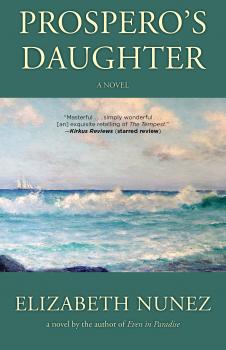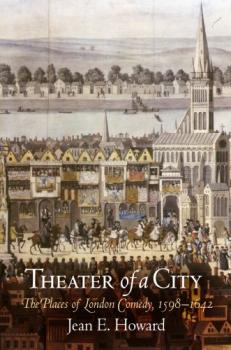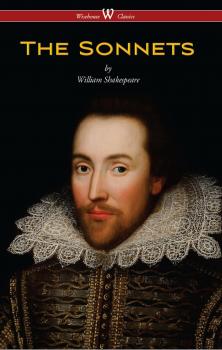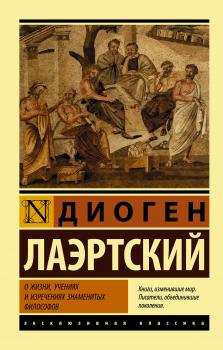ТОП просматриваемых книг сайта:
Античная литература
Различные книги в жанре Античная литература, доступные для чтения и скачиванияАннотация
In Shakespeare the Illusionist, Neil Forsyth reviews the history of Shakespeare’s plays on film, using the basic distinction in film tradition between what is owed to Méliès and what to the Lumière brothers. He then tightens his focus on those plays that include some explicit magical or supernatural elements—Puck and the fairies, ghosts and witches, or Prospero’s island, for example—and sets out methodically, but with an easy touch, to review all the films that have adapted those comedies and dramas, into the present day. Forsyth’s aim is not to offer yet another answer as to whether Shakespeare would have written for the screen if he were alive today, but rather to assess what various filmmakers and TV directors have in fact made of the spells, haunts, and apparitions in his plays. From analyzing early camera tricks to assessing contemporary handling of the supernatural, Forsyth reads Shakespeare films for how they use the techniques of moviemaking to address questions of illusion and dramatic influence. In doing so, he presents a bold step forward in Shakespeare and film studies, and his fresh take is presented in lively, accessible language that makes the book ideal for classroom use.
Аннотация
"The very title of Elizabeth Nunez's gripping and richly imagined sixth novel, Prospero's Daughter, distances her work from both the original Tempest (in which the daughter, Miranda, is perhaps the least developed of all Shakespearean heroines) and from the many postcolonial reactions to the play…Nunez, who is a master at pacing and plotting, explores the motivations behind Caliban's outburst, hatching an entirely new story that is inspired by Shakespeare, but not beholden to him."– New York Times Book Review "Masterful…simply wonderful…[an] exquisite retelling of The Tempest." –Kirkus Reviews (starred review) "Absorbing…[Nunez] writes novels that resound with thunder and fury."– Essence "A story about the transformative power of love…Readers are sure to enjoy the journey."– Black Issues Book Review Prospero's Daughter is a captivating recreation of Shakespeare's The Tempest set on a verdant Caribbean island during the height of tensions between the native population and British colonists. Using Shakespeare's play as a template to address questions of race, class, and power, Nunez turns an intimate eye to an unlikely bond formed between a boy and a girl of disparate backgrounds.When Peter Gardner's ruthless medical genius leads him to experiment on his unwitting patients–often at the expense of their lives–he flees England, seeking an environ where his experiments might continue without scrutiny. He arrives with his three-year-old-daughter, Virginia, in Chacachacare, an isolated island off the coast of Trinidad, in the early 1960s.Gardner considers the locals to be nothing more than savages. He assumes ownership of the home of a servant boy named Carlos, seeing in him a suitable subject upon whom to continue his amoral medical work. Nonetheless, he educates the boy alongside Virginia. As Virginia and Carlos grow and come of age together, they form a covert relationship that violates the outdated mores of colonial rule.When Gardner unveils the pair's relationship and accuses Carlos of a monstrous act, the investigation into the truth is left up to a curt, stonehearted British inspector, whose inquiries bring to light a horrendous secret. At turns epic and intimate, Prospero's Daughter is one of the finest novels of the past two decades.
Аннотация
Drawing on his eighteen years of experience as a teaching artist for Folger Shakespeare Library, Nick Newlin offers eighteen scenes to get young actors on their feet performing Shakespeare with confidence, understanding, and fun!Each scene averages five minutes in length, containing two to six characters, and features a monologue that young performers can use in performance, audition, or competition. Every scene has been «road tested» by one of Newlin's student groups at the Folger's annual Secondary School Shakespeare Festival, and includes dynamic stage directions and incisive performance notes to help teachers and students bring Shakespeare's plays to life. The 30-Minute Shakespeare Anthology includes one scene and monologue from eighteen of Shakespeare's greatest plays, including Romeo and Juliet , Macbeth , Hamlet , Othello , A Midsummer Night's Dream , Julius Caesar , Much Ado About Nothing , As You Like It , The Merchant of Venice , and The Taming of the Shrew .Additionally, the anthology contains a scene and monologue from Henry IV Part I , King Lear , As You Like It , The Comedy of Errors , The Tempest , Twelfth Night , The Merry Wives of Windsor , and Love's Labor's Lost .Also featured is an essay by editor Nick Newlin on how to produce a Shakespeare play with novice actors, and notes about the original production of this abridgment at the Folger Shakespeare Library's annual Student Shakespeare Festival. Each scene and monologue has accompanying notes and performance suggestions.
Аннотация
SHAKESPEARE'S SONNETS is the title of a collection of 154 sonnets by William Shakespeare, which covers themes such as the passage of time, love, beauty and mortality. The first 126 sonnets are addressed to a young man; the last 28 to a woman. The sonnets were first published in a 1609 quarto with the full stylized title: “SHAKE-SPEARES SONNETS. Never before Imprinted.” (although sonnets 138 and 144 had previously been published in the 1599 miscellany The Passionate Pilgrim). The quarto ends with “A Lover's Complaint”, a narrative poem of 47 seven-line stanzas written in rhyme royal—though some scholars have argued convincingly against Shakespeare’s authorship of the poem. The sonnets to the young man express overwhelming, obsessional love. The main issue of debate has always been whether it remained platonic or became physical. The first 17 poems, traditionally called the procreation sonnets, are addressed to the young man urging him to marry and have children in order to immortalize his beauty by passing it to the next generation. Other sonnets express the speaker's love for the young man; brood upon loneliness, death, and the transience of life; seem to criticize the young man for preferring a rival poet; express ambiguous feelings for the speaker's mistress; and pun on the poet's name. The final two sonnets are allegorical treatments of Greek epigrams referring to the “little love-god” Cupid.
Аннотация
Sang Thong: A Dance-Drama from Thailand, a beloved treasure of Thailand's classical theater is now available for the first time in English.Composed by King Rama II and his court poets early in the 19th century, this captivating dance-drama blends ribald humor, sharp observation, and graceful poetry. Its incidents are based on age-old Asian legends and on vigorous folk-traditions of the Thai countryside, where King Rama II had been raised as a commoner before his father ascended the throne. Into his retelling of the story Sang Thong, a child of godlike beauty whose strange birth in a conch shell caused him to be exiled from his kingdom, the dramatist king wove reflections on the mysterious workings of fate, legends of spirits and ogres, and episodes in which the machinations of courtiers and foibles of lovers play important parts. The world transformed by the beliefs and values of an ancient civilization.For the modern Thais, Sang Thong is a rich and pervasive cultural influence. For Western readers, this translation will provide valuable insights into a fascinating, hitherto unknown literary masterpiece. Sang Thong: A Dance Drama From Thailand will offer stimulating cultural data for years to come.
Аннотация
From Shakespeare’s historical plays and comedies such as As You Like It and The Taming of the Shrew, to the great tragedies of Macbeth, Othello and Hamlet you will find the famous plots, wit and drama. This volume is a reprint of the Hayes Barton titles published for the educational market. Included are his Sonnets and longer poems.
Аннотация
Произведение «Поэтика» создал древнегреческий ученый-энциклопедист, известный как основатель классической логики, Аристотель (384-322 г.г. до н. э.)*** Литературное исследование автора является одним из первых в истории произведением, в котором обобщены эстетические знания античного мира. Автор произвел целый ряд теоретико-литературных категорий, объяснив разделение литературы на три вида: эпос, драму и лирику. К научно-творческому наследию Аристотеля относят следующие произведения: собрание произведений по логике «Органон», «Метафизика», «Физика», «Политика», «Этика», «Поэтика», «О душе», «Афинская полития». Аристотель – величайший из философов античного мира, авторитет которого был непоколебим и в эпоху средневековья, когда церковь отвергала все наследие древней Греции, как языческое. В его философской концепции имелось уже много элементов материализма.
Аннотация
Диоген из Лаэрты в Киликии (первая половина III в. н. э.) оставил нам сочинения, являющиеся единственной и уникальной «историей философии», написанной в Античности.
В этом трактате излагаются учения всех известных к тому времени древнегреческих мыслителей, начиная с Пифагора и заканчивая стоической и эпикурейской школами.
Перевод выполнен ведущим отечественным специалистом в области античной литературы академиком М. Л. Гаспаровым, вступительная статья и некоторые комментарии написаны известным русским философом, выдающимся знатоком античности А. Ф. Лосевым.










